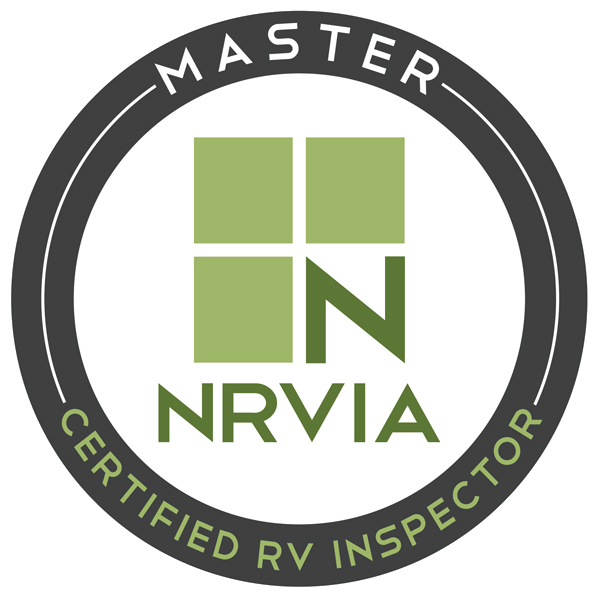 Don’t Believe These Common RV Inspection Myths! There are so many things to consider when you are buying a motorized or towable RV, of any class or size. It might seem to take forever before you finally find the RV that you believe is right for you – but once you do, don’t forget about the independent pre-purchase inspection! Whether a pop-up camper, a Class A motorhome, or anything in between, it’s one of the most important parts of the sales process. But, there is a lot of misinformation out there, so it’s important to have some guidance. Based on my five plus years in business as an NRVIA Certified RV inspector, an RVIA/RVDA registered tech, an owner of RVs for over 25 years and having performed hundreds of inspections on all types, classes and sizes of RVs, here are what I believe to be some common myths about pre-purchase RV inspections: All RV Inspectors are the Same This could not be further from the truth! It might be logical to assume that every “RV inspector” will provide the same service, but that’s just not the case. When choosing an inspector, check to see if they are NRVIA Certified or NRVIA 'Master Certified' and perhaps even an RVIA/RVDA tech, as well. These certifications mean they have been trained to go above and beyond any minimum expectations of an inspection, and in the case of a MASTER Certified inspector, PROVEN to offer a high level of quality service . NRVIA certified inspectors aren’t just “looking” at the RV but are actually testing the various operating systems and documenting their findings! Believe it or not, some “inspection companies” won’t go on the roof to inspect it, allow you to be present at the inspection or to even speak to the inspector if you have questions! When you work with an NRVIA Certified RV inspector, you can be sure that your best interests are always in mind, and that your inspection will be completed to the highest of standards. Be sure to ask your potential inspector about their training and experience. When choosing an inspector, always ask for a Points of Inspection list, so you will know ahead of time what the inspection will entail. NRVIA certified inspectors are also trained to pull fluid samples for lab analysis on the coolants, oils and transmission of the motorhome, tow vehicle or generator. For tips on selecting a qualified inspector, click here. Who is the NRVIA? The NRVIA (National Recreational Vehicle Inspectors Association) was established to provide increased awareness to the importance of quality RV inspections and to enhance the professionalism of RV inspectors. The mission of the NRVIA is to set and promote standards for recreational vehicle inspections and to develop a network of certified, professional RV inspectors across North America that have undergone a strict training, standardized testing and certification process to ensure that the end consumer is getting a quality inspection by a true professional bound by a strict Code of Ethics.[i] You Don’t Need an Inspection – The Dealer is Already Doing Their Own Unfortunately, even on new units, issues – sometimes serious ones, can and have been found; even after a dealer has performed their own pre-delivery inspections (PDI’s). Many times, dealers only spend a very limited amount of time doing a PDI, checking a limited number of items. Depending on the size & type of RV and the amenities it has, a proper inspection can typically take 5 – 10 man-hours! The roof alone can take 30 minutes to inspect properly! At times, the inspection report can be over 100 pages and include many photos with descriptions of the issues found. Any issues discovered are typically categorized into different levels of severity in the inspection report. Doesn’t that sound better than someone claiming they will spend an hour or two “inspecting” your potential RV and then giving you a 1 or 2 page checklist as a report? The best thing is that this independent NRVIA certified inspection is performed for you, the buyer, with your best interests in mind. New RV’s Don’t Need a Pre-Purchase Inspection Contrary to popular belief, new RV’s definitely do need an independent pre-purchase inspection. Just because an RV is new, it does not mean it is free of problems. In fact, issues are often found with plumbing, electrical & propane systems, sealants, safety and finish; again, even after the dealer has done their own PDI! Always have an independent RV inspector do a complete inspection so you know the unit is completely functional and safe, or not. If you have to bring your RV back to the dealer for repairs on items that should have been found before taking possession, you could be in for a very long wait! Make sure to have any discovered issues repaired to your satisfaction prior to completing the sale or accepting delivery. Used RV’s Already Have All the “Bugs” Worked Out This is another widely held myth. Most owners believe they DO take good care of their RV’s. However, many owners may also be unaware of items that need frequent regular maintenance and possible periodic replacement of items or, simply choose to not perform these tasks. When an inspection is completed, most sellers state they were completely “unaware” of the issues discovered. They assume the RV they are selling is in “great” condition with no issues! Furthermore, some sellers (both private sellers and dealers) may choose to NOT disclose known defects in hopes of making a quick sale. Is the RV being sold "as is"? Then, it is even more important that you know what you are getting into - AHEAD OF TIME! Quite frankly, I have yet to inspect any used, or new unit, that had all the “bugs” worked out. Usually, there a quite a number of “bugs” to be dealt with! Pre-purchase due diligence is up to the buyer – YOU!. You’ll Just be in the Way if You Attend the Inspection No, you won’t! A buyer should attend the inspection, if possible – and if an inspector does not want you there at all, you should take your business elsewhere. This is the perfect time to see first-hand what issues may be present and to ask any questions you might have. All that is typically asked is to keep distractions to a minimum and to save questions until the end, if possible, so the inspector can focus on the task at hand. Another alternative, is to attend the inspection towards the end. This way, the inspector can focus on the job you paid them to do, and any issues discovered during the course of the day can be shown to you personally at the end of the inspection An Inspector Can Give Advice on Whether or Not to Buy an RV There is a lot of valuable information that an independent inspector provides, but telling a buyer whether they should buy an RV or not is not one of them. Each person has their own opinion of what is acceptable and what they are willing to negotiate on. The purpose of a pre-purchase inspection is to get detailed information regarding the condition and functionality of the unit. It is up to the buyer to decide whether to complete the purchase or not. You may be able to negotiate needed repairs, negotiate price reductions based on the condition or, walk away from the deal entirely. Always make sure any “hold” deposit is fully refundable. For more info and to schedule YOUR independent pre-purchase RV inspection, please visit us at PRORVI.COM [1] NRVIA website – https://nrvia.org/
7 Comments
|
AuthorProfessional RV Inspections, LLC (Pro RVI) owner Rob Wilhelm is an RVIA/RVDA registered tech, is also certified by the NRVIA as a 'Master Certified' RV inspector and performs RV inspection services all over the Midwest. ArchivesCategories |
 RSS Feed
RSS Feed



